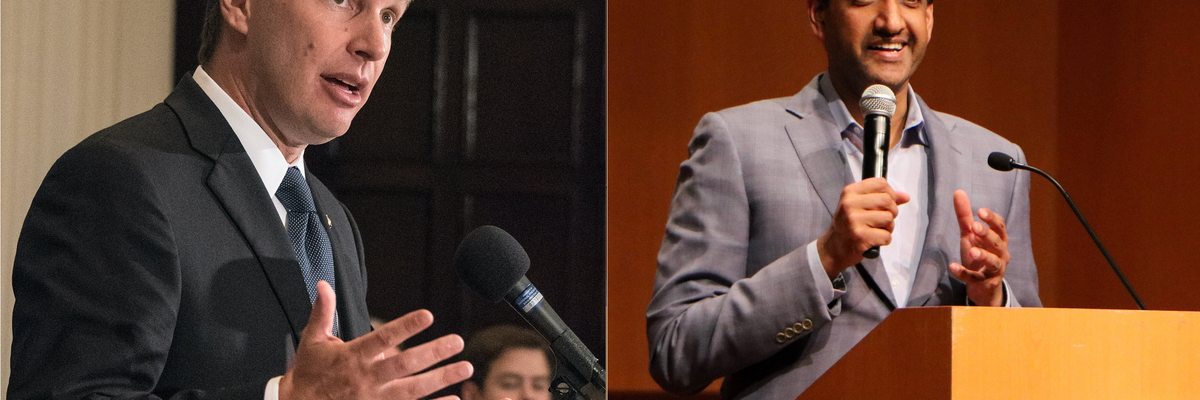Two progressive Democratic members of Congress argued on a Wednesday panel that the United States needs to make the first move in returning to the 2015 nuclear deal with Iran.
Sen. Chris Murphy (D–Conn.) and Rep. Ro Khanna (D–Calif.) called for a more proactive U.S. stance towards the Joint Comprehensive Plan of Action at a video event hosted by the National Iranian American Council and several other pro-diplomacy groups.
“It was a disappointing start when it comes to Iran policy from this administration,” Khanna said. “We have to try to get back into the JCPOA by getting back into the JCPOA, not playing a game of chicken.”
He suggested that State Department Special Envoy for Iran Robert Malley has had his hands tied by other factions in the administration.
“I know Rob Malley understands this, I know he is qualified to do this, so I wonder where the roadblocks are,” Khanna added.
Under the original JCPOA, six world powers agreed to lift the international embargo on the Iranian economy in exchange for strict limits on Iran’s nuclear program. The Trump administration broke from the agreement in 2018, and Iran retaliated by increasing some nuclear activities.
The Biden administration has said that it wants to return to the JCPOA, but initially took a hardline stance by demanding that Iran make the first move. There are signs that the U.S. position is becoming more flexible, although Iran has reportedly now hardened its own stance.
“The United States was the first to leave the agreement, and so the United States shouldn’t be wary of taking the first step back into the agreement,” Murphy said. “There is no weakness in the United States admitting that, but for our noncompliance, the JCPOA would still be alive and well today.”
Both Murphy and Khanna noted that the United States could lift economic sanctions immediately, and restore them if Iran failed to reciprocate.
Murphy claimed that the Trump administration’s policy had a “very small silver lining” because it proved that “maximum pressure was a miserable, one hundred percent failure.”
“Trump did exactly what opponents of the JCPOA recommended,” he said. “It’s important to remind the opponents of the agreement that their argument has been tested. Their argument has failed.”
Murphy and Khanna also noted that the United States needs to get Iran to the table in order to resolve the bloody conflict in Yemen.
And Murphy called for a deeper reset in the U.S. relationship with the region that moves away from sectarian views.
“We need to have a broader conversation about whether we really have an interest in who wins these fights between the Sunni and Shi’a side of the region,” he said. “We certainly may have a favorite, but the question is whether we need to weigh in as decisively as we have over the past decade.”
















